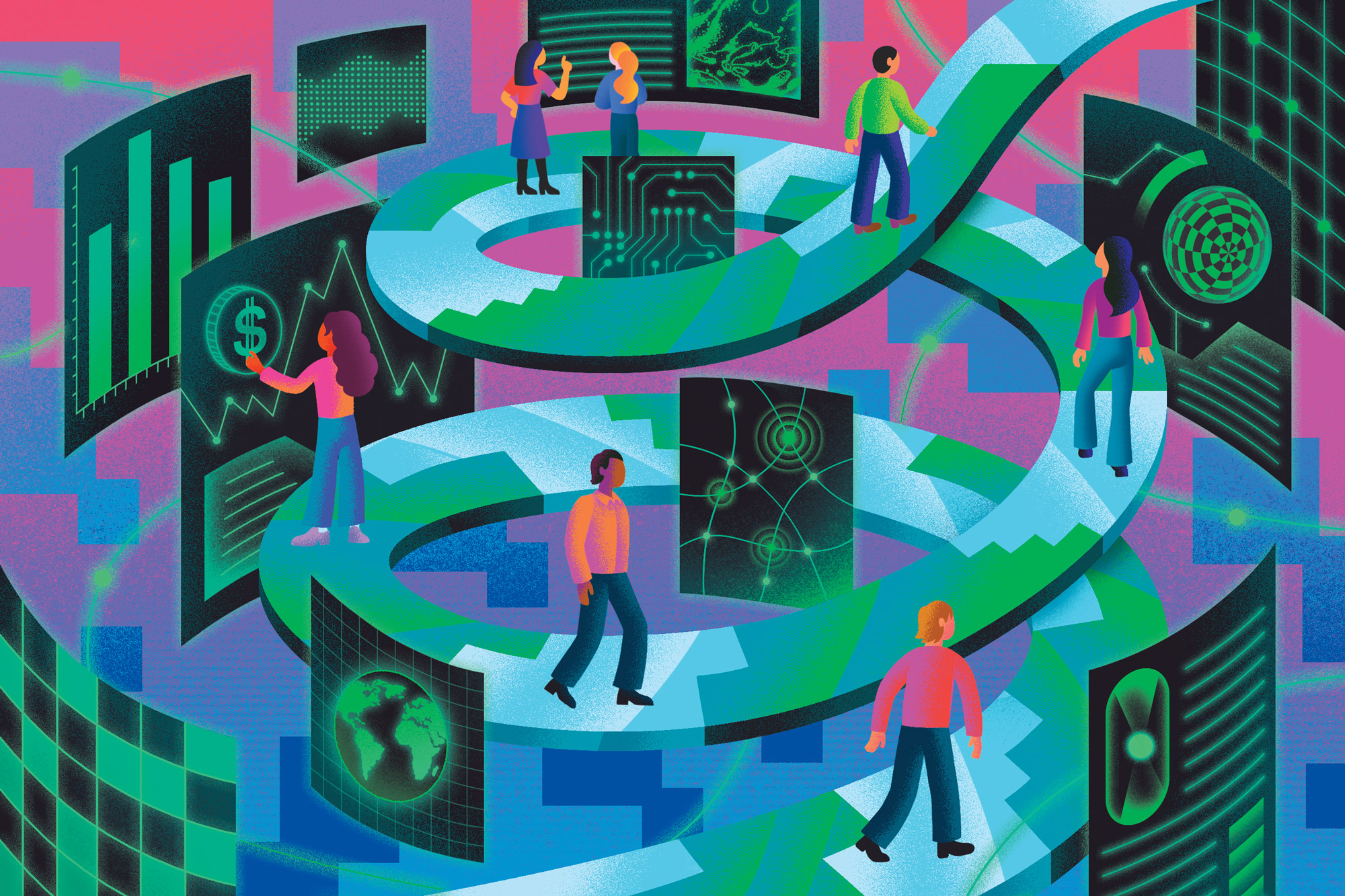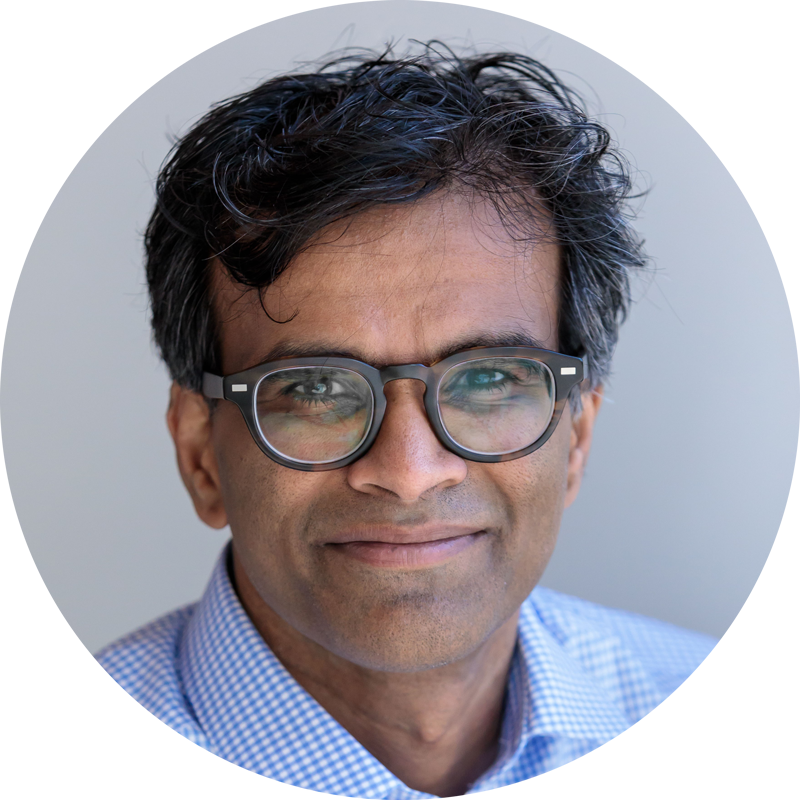

Sendhil Mullainathan
ILLUSTRATION: ARIEL DAVIS
While he opted for the latter, Mullainathan ultimately incorporated both disciplines into his work. His career trajectory eventually brought him to MIT, where Mullainathan—a former MacArthur Fellow—holds a dual appointment in electrical engineering and computer science (EECS) and in the economics department in the School of Humanities, Arts, and Social Sciences. Through his EECS appointment, he serves on the faculty of both the MIT Stephen A. Schwarzman College of Computing and the School of Engineering.
Early in his graduate studies, Mullainathan became frustrated by the limitations he recognized in classical economic theory. The people represented in economic models were idealized, making wholly rational decisions based on the information available to them. “But they didn’t resemble the people I’ve encountered,” he observes. Much like everyone else, he says, “when I reflected on my own life, I recalled making a lot of mistakes and doing some pretty dumb things.”
For this reason, he was attracted to behavioral economics, a field that draws on principles of psychology and economics in an attempt to predict the actions of people in the real world, where emotions compete with reason and our choices are readily swayed by environmental influences.
After completing his Harvard PhD in 1998, Mullainathan joined MIT’s Department of Economics for the first time. He became interested in development economics after working with future Nobel laureates Esther Duflo PhD ’99, the Abdul Latif Jameel Professor of Poverty Alleviation and Development Economics, and Abhijit Banerjee, the Ford Foundation International Professor of Economics, with whom he cofounded the Abdul Latif Jameel Poverty Action Lab (J-PAL). “I grew up in India and thus had a personal connection to the subject of poverty,” Mullainathan says. That motivated him to find out “why poor people are poor, and the more I looked into it, the more I recognized that the circumstances of poverty create their own unique psychologies.” These can extend far beyond the lack of money, he explains, as poverty casts what he calls a “mental footprint” that can affect practically every facet of life. Lack of sound nutrition and sleep, for instance, can impair one’s cognitive abilities, leading to poor decision-making and poor parenting—factors that can make poverty self-perpetuating. Mullainathan presented these ideas in a 2013 book, Scarcity: Why Having So Little Means So Much (Times Books), written with psychologist Eldar Shafir.
Read More
Can Algorithms Improve Research Quality?
After appointments at Harvard and the University of Chicago, Mullainathan returned to MIT’s faculty last year with a new perspective. Work in behavioral economics, he says, “has helped us understand how the foibles of humanity can create complex situations for people, making it seem like we’re all living in a Shakespearean play.” Although we’ve gained insights, he adds, “we haven’t been so great on solutions. The interventions we’ve come up with are often too wooden, unable to match the richness of the dilemmas we face.”
Mullainathan now has embarked on what he calls his third phase of work, during which he hopes to develop algorithms that can directly benefit people. The approach he advocates requires a shift in the emphasis of AI. Most of the work done to date involves “automation tasks,” he says, “training a computer to do what humans can do—only doing so faster and cheaper.” His idea is to flip that strategy on its head. Rather than getting computers to substitute for humans, he wants to enhance human capacity, “to harness AI for tasks that people find hard to do and would love to be able to do better.”
Working with assistant professor of economics Ashesh Rambachan and several graduate students, Mullainathan is researching personalized algorithms that can help with everyday decisions. “Rich people can afford to have financial advisors [as well as other kinds of advisors], but that’s not true for everybody,” Mullainathan says. “Once you realize how much of human life revolves around decision-making, this becomes a very natural thing to try to do.”